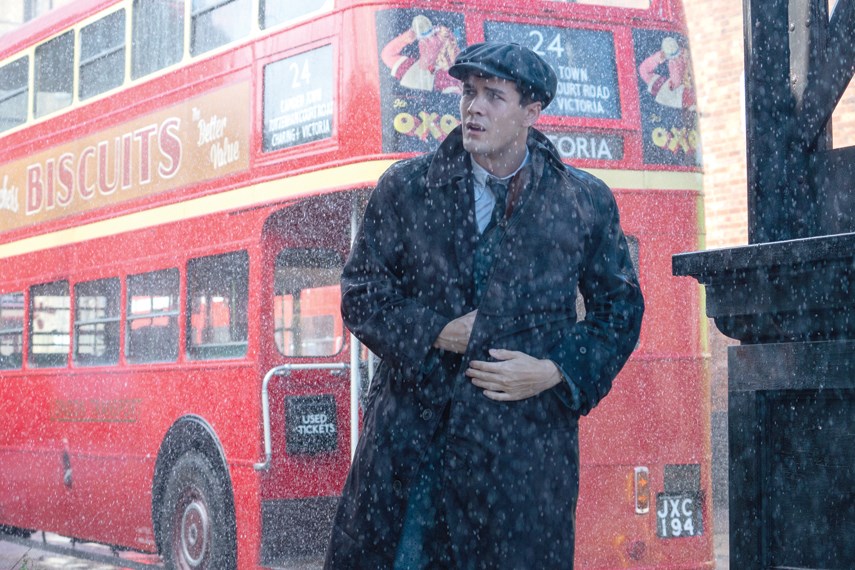The Song of Names. Directed by François Girard. Starring Tim Roth and Clive Owen. Rating: 6 (out of 10)
A detective story rarely runs headlong into questions of musical genius and faith, but director François Girard unites both in a mystery that succeeds best when the music takes centre stage.
The film opens in 1951, with the much-anticipated international debut of violin prodigy Dovidl Rapaport (played in young adulthood by Jonah Hauer-King). The Times music critic is in attendance, as well as members of the peerage; the 21-year-old, however, never shows up for the concert. In fact, he is never seen again.
The disappearance continues to haunt Martin Simmonds when we meet him 35 years later (played by Tim Roth).
Flashbacks reveal that Martin and Dovidl were raised in the same household, as war was breaking out across Europe. Dovidl’s father left him in the care of Martin’s parents and returned to Warsaw, where the Nazi invasion prevented a Rapaport family reunion, their fate unknown.
The boys are different: one is a musical genius, one is merely middling; one conforms, one rebels; and one is Jewish, one is Christian.
After a rocky start they nonetheless become brothers of sorts, playing chess and keeping one another accountable for music lessons (Luke Doyle, who plays Dovidl from age 10 to 13, is a real-life violin prodigy with no previous acting experience).
So when middle-aged Martin, now a music-competition adjudicator, spies a teenaged violinist applying rosin to his bow in the same distinctive way that Dovidl used to, he starts chasing a smoke-thin trail across Europe and the U.S. in order to finally get answers.
This doesn’t sit particularly well with Martin’s wife Helen (Catherine McCormack), who knew Dovidl back in the day and seems especially bitter that Dovidl’s disappearance should obsess her husband so.
The concert bankrupted Martin’s father (Stanley Townsend) and likely pushed him into an early grave; Martin seems to harbour surprisingly little resentment over the fact that Dovidl was the favoured son.
Of course, we know Dovidl is alive somewhere; Clive Owen’s name is second-billed, after all.
Often the key to tracking down Dovidl lies in tracing the journey of his beloved violin, a 1735 Nicolo Gagliano.
It’s a device Girard has used before, in his epic The Red Violin, which traced an instrument hand-to-hand through centuries.
The eventual meeting is surprising, the revelation emotionally rich and devastating, thanks to an oral tradition passed, like the Torah, “from mouth to ear for 100 generations.”
But the script, based on the novel by classical music critic Norman Lebrecht, fails to fully redeem a film that, while pleasing and well-executed, can’t connect to its audience in the first hour. Perhaps it’s the arrogant nature of genius that keeps us from being fully invested in Dovidl, or maybe it’s the necessary use of three actors to play the characters in three stages of life.
The look of the film isn’t particularly inspired either, what with all that rushing in airports, sitting in taxicabs and in dim communist front rooms, as if the whole thing was draped in Martin’s overcoat.
There are a few notable al fresco exceptions, as when Dovidl goes to “play for the ashes” and when Martin visits Treblinka (The Song of Names is the first film to receive permission to film at the Treblinka memorial).
The film is at its best when it slows down, takes a deep breath and lets the music do the talking. Howard Shore (Oscar-winning composer of The Lord of the Rings and The Hobbit trilogies) composed The Song of Names based on cantorial tradition of the period.
He infuses the film with a passion that is lacking elsewhere in the story.



